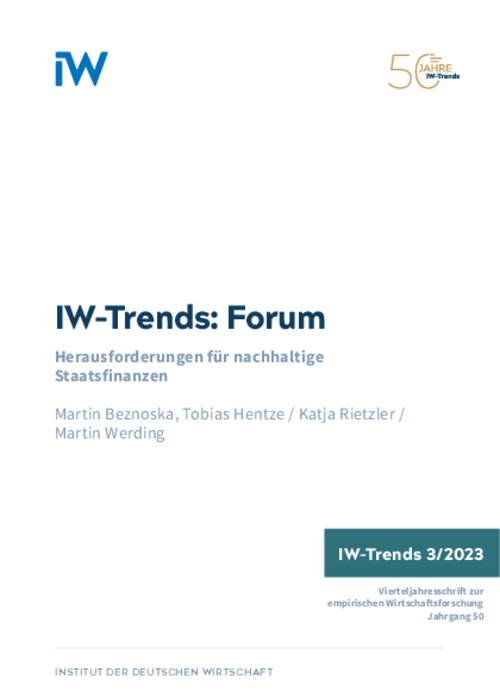The German government’s fiscal responses to the Covid-19 pandemic and the Ukraine war in an attempt to cushion their impact have driven up the country’s general government debt-to-GDP ratio.

The Challenges to the Sustainability of Germany’s Public Finances

The German government’s fiscal responses to the Covid-19 pandemic and the Ukraine war in an attempt to cushion their impact have driven up the country’s general government debt-to-GDP ratio.
At the same time, the national agenda includes challenging projects such as decarbonisation and the digitalisation of both the economy and society as a whole, all of which will require state investment. Moreover, over the next 20 years a dramatic ageing of the German population will put pressure on the financing of such public expenditure as the statutory pension, health and long-term care insurance schemes. This, too, will noticeably increase federal spending and probably the debt-to-GDP ratio. Discussions of policymakers’ fiscal room to manoeuvre thus inevitably centre on Germany’s “debt brake”, a constitutional cap on federal borrowing. Given all these challenges, the question arises as to the sustainability of Germany's public finances in the medium and long term and how much fiscal leeway exists or can be achieved through reforms. Three contributions to an IW-Trends: Forum tackle these issues by analysing the status quo and the prospects for government debt and discussing fiscal policy options. First, Dr. Katja Rietzler (Macroeconomic Policy Institute – IMK) describes the current options for the federal budget; then Dr. Martin Beznoska and Dr. Tobias Hentze (German Economic Institute – IW) deal with the medium-term sustainability of government debt; and finally Prof. Martin Werding (Ruhr University Bochum; member of the German Council of Economic Experts – SVR) takes a look at the long-term sustainability of government finances in the light of the demographic transition.

The Challenges to the Sustainability of Germany’s Public Finances

More on the topic

Challenges for the debt brake
In 2019, Bardt et al. (2019) initially presented a comprehensive estimate of the unmet public investment needs in Germany not covered in household planning at the time, totaling around €460 billion over ten years.
IW
Desire and reality: Hardly any scope for public spending in the new legislative period
The 2021 election campaign for the German Bundestag reveals various demands on the federal budget over the next years. In the coming legislative period, for example, the federal budget may have to finance the "mothers' pension", take over the EEG levy, ...
IW